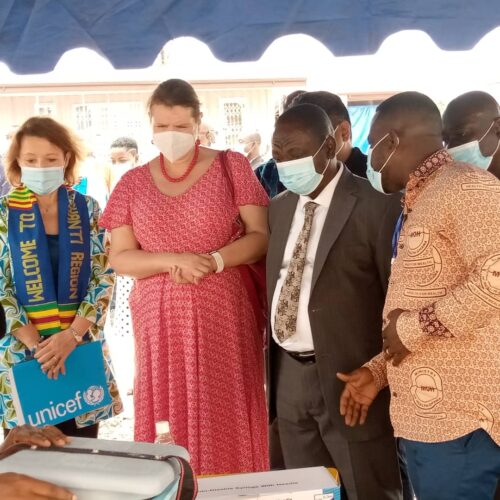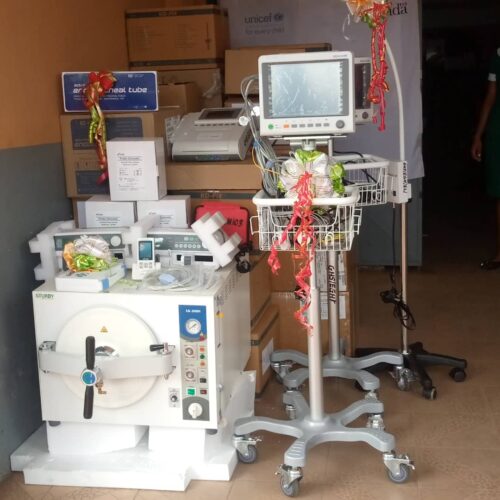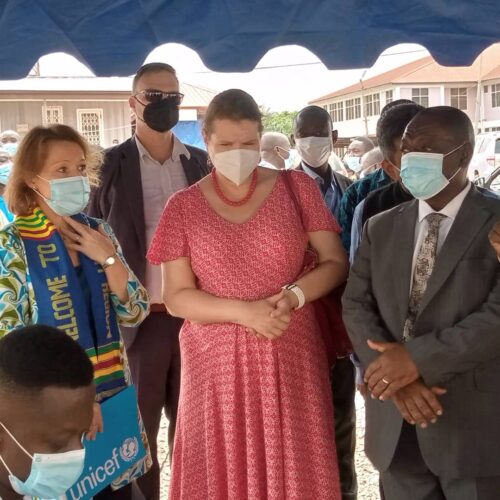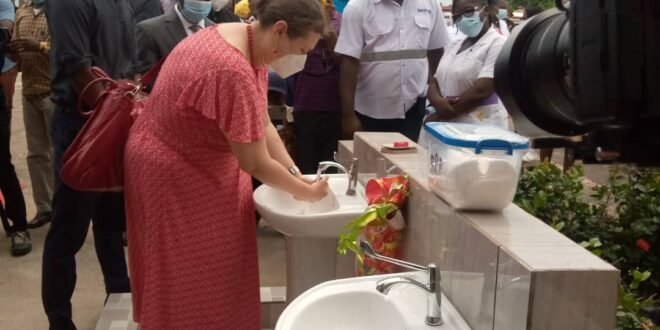The Canadian Government has supported the Ashanti Regional Health Directorate with $10 Million economic package to assist lifesaving offerings for the human beings in Ghana particularly the ones withinside the Ashanti Region following the COVID-19 pandemic.
The assist is to enhance first-class fitness care, maternal fitness, training, sanitation and hygiene in addition to portable water in a few decided on hospitals withinside the Region with a focal point on gender equality.
The Ashanti Region which presently has the second-maximum wide variety of suggested COVID-19 instances is making the most of this system with the assist of the Canadian authorities under a strategic partnership among the Government of Ghana and the United Nations Children’s Fund (UNICEF).

This is to bolster the region’s ability to diagnose and deal with COVID-19 sufferers thru the availability of four PCR Machine use to diagnose Covid-19, neonatal resuscitation equipments like phototherapy machine, incubators, radiant warmers, oxygen concentrators among others. At the handing over ceremony at Ejisu Government Hospital of the Ashanti Region, H.E. Kati Csaba, Canadian High Commissioner to Ghana stated girls and ladies had been disproportionally being suffering from the pandemic.

She said Canada was proud to support UNICEF with $10 Million and the Government of Ghana in addressing gender inequalities in their work to prevent and respond to COVID-19, adding that it would help achieve the ambitious targets set out through the Sustainable Development Goals (SDGs).
She said COVID-19 had placed enormous strain on essential services which had been further challenged by the lack of basic water and functional sanitation services in many healthcare facilities in Ghana.
She added the project at neonatal intensive care units in support of the newest members of the community and also increase the number of laboratories with COVID-19 diagnostic capacity which would also address the gaps in sanitation and hygiene infrastructure to improve the process of infection prevention and control and to mitigate the threat of COVID-19 infections in the selected facilities.

Ms. Anne-Claire Dufay, UNICEF representative in Ghana on behalf of UNICEF, asserted that primary healthcare and integrated services across sectors could save lives and help boost progress towards universal healthcare as well as gender equality.
She said UNICEF was delighted to partner with the Government of Ghana and Canada to have a positive impact on the lives of the most vulnerable children and women.
Dr. Emmanuel Tenkorang, the Ashanti Regional Health Director, commended the Canadian government and UNICEF for the support to enhance the Region’s preparedness in infection prevention, build the capacity of health workers, and provide the needed critical COVID-19 diagnosis, management, and provision of essential health services to women and children.
He expressed the directorate’s appreciation for the intervention and pledged his commitment to ensuring a successful implementation of the project.
Source: Ghanatodayonline.com/Akwadaa Nyame
 Ghanatodayonline.com News, Politics, Health, Education & More
Ghanatodayonline.com News, Politics, Health, Education & More




